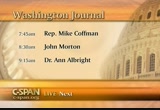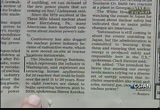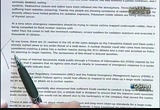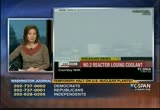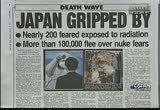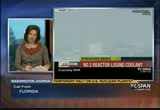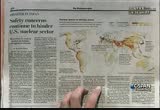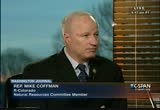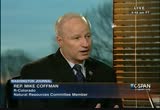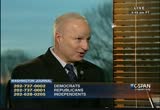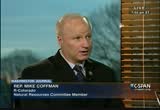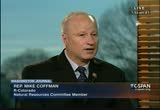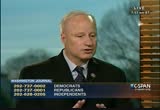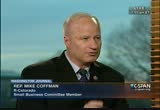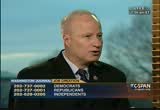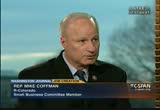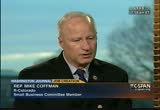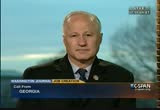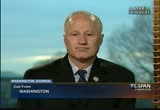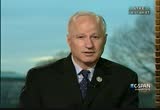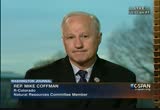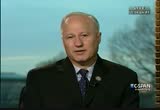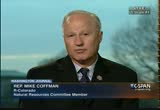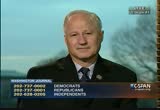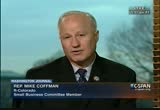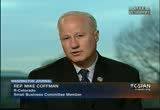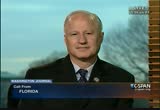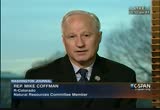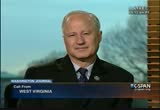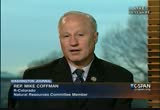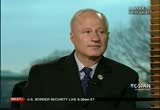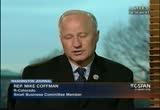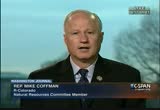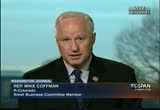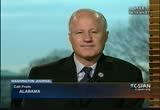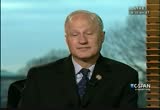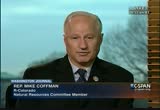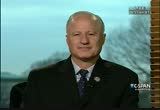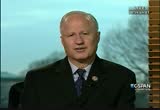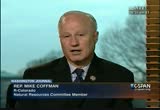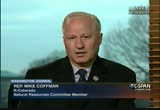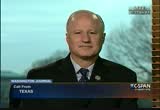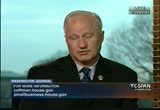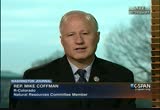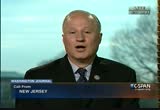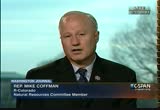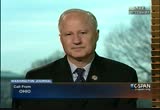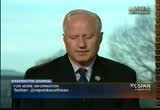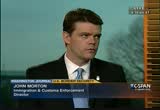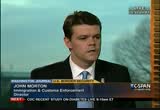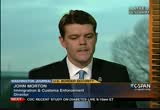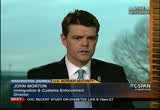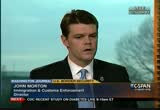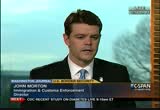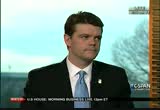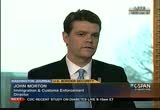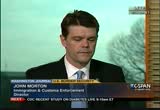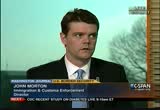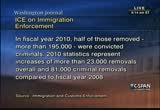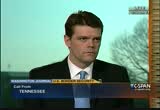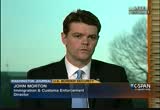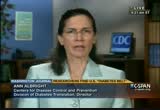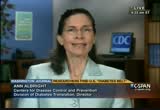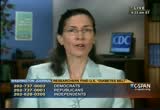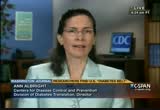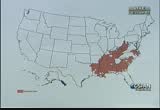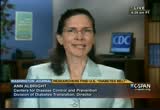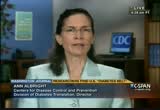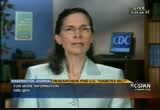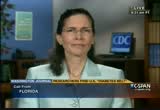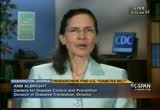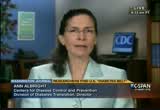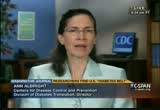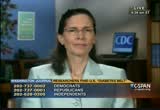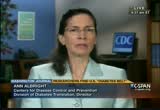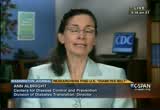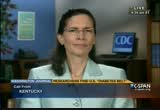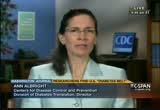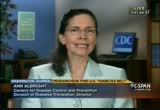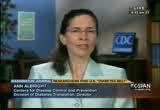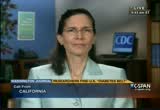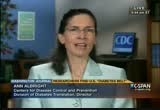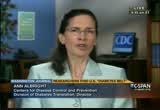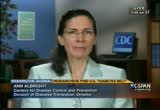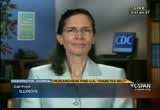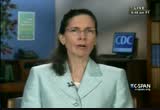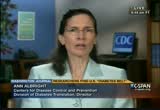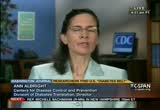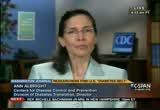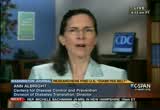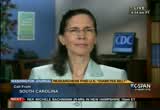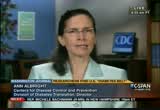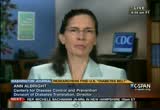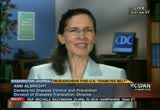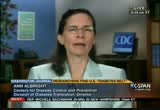tv Washington Journal CSPAN March 14, 2011 7:00am-10:00am EDT
7:00 am
security, with immigration and customs enforcement director john morton. after that, dr. albright talks about the latest puddy on the be geographic distribution of diagnosed diabetes. "washington journal" is next. host: japanese network reporting a second explosion reported that the fukushima power facility. the second in three days. according to reports, the blast sent a massive column of smoke in the air and wounded 11 workers. meanwhile, u.s. resources are arrived to help the country responded to friday's earthquake that killed more than 10,000. japan's prime minister says it
7:01 am
was the worst crisis since world war ii. while japan works to control its nuclear facilities from a third explosion, here and the united states, some lawmakers are asking for a halt to our nuclear power facilities. your thoughts on the that this morning. we will begin with "the new york times" and their head line. "u.s. nuclear push may be in peril."
7:02 am
7:03 am
here is what he had to say. >> we have 104 nuclear power plants in our country. every year, once a year, fema, nuclear regulatory commission, they go through emergency planning to see what they would do if it's a disaster struck. -- if a disaster struck. the reality is we are watching something unfold and we do not know where it is going regarding nuclear power plants in japan right now and then think it calls on us here in the u.s. not to stop building nuclear power plants but to put the brakes on right now until we understand the ramifications of what happened in japan. a host: democrat from morocco, maryland. what do you think about a temporary halt on u.s. nuclear plants? guest: -- caller: chernobyl still leaking. the american people have the right to make that decision. not the politicians.
7:04 am
if you see what is going on in japan, we do not know what will happen -- god bless them. however, i will say take your time and be very mindful of the ramifications. and also i would like to quickly say, good morning to you and good morning to sheila jackson lee and my hero, pj crowley who resigned -- free bradley manning. host: nuclear policy will be on the table at a hearing of -- when stephen chu, energy secretary, and the chairman of the nuclear regulatory commission are expected to testify. the ranking democrat, is skeptical of nuclear power, who
7:05 am
nonetheless supported expansion as part of the house energy and crime legislation he co- sponsored, said the u.s. needs tougher standards for operating the delaware plants and regulators should consider a moratorium in locating them in seismically active areas -- long island, new york. scott is an independent. what do you think of this idea? are you with us? go ahead, sir. caller: i think we should stop building nuclear-powered plants in the united states now. and for all the people who are going to call up and tell us they are safe and all of that, tell us where you live and we will build one in your backyard. host: what is your experience living in long island? caller: they tried to build a
7:06 am
nuclear power plant. enough people got out there and protested. there was no way they could be back with long island if there was an accident. the best thing they could have ever done. host: the democrat that we quoted before sent a letter to president obama on saturday. he writes in the letters -- we will go to haymarket, virginia. steve, republican. caller: the new or power plants would be more safe.
7:07 am
host: where is that one? georgia? caller: no, no, -- china is building a bunch of them. south africa invented them. what it does is it is a funnel over top of a convex for, and if there is an earthquake, -- it will come out and they would dissipate and remove the critical mass. at the nuclear power plant shut down immediately if there is a disaster or terrorist attack. host: mitch mcconnell, the lead republican in the senate, was also on the sunday shows yesterday and he was asked about what should be done on nuclear policy. >> i think what we ought to do right now is concentrate on trying to help our japanese friends after this disaster. this discussion reminds me somewhat of the conversations that were going on after the bp oil spill last year.
7:08 am
i don't think right after a major environmental catastrophe is a very good time to be making american domestic policy. my thought about it is it is we ought not to make domestic policy based on an event that happened in japan and we ought to concentrate on helping the japanese get past this catastrophe. host: john, a democrat on long island. go ahead. caller: greta? i would like to comment on the nuke problems. if you factor in the amount of fossil fuel it takes to extract uranium, process it, and store it and build the infrastructure of these plants and maintain them, nuclear power is a net loss. regarding to three mile island -- they say there were no loss of lives. dr. sternglass did an investigation of the hospital records of the maternity wards after the three mile island
7:09 am
disaster a couple of years, and there was an excess of thousands of miscarriages in the hospital down wind from three mile island. so, nuclear power is a disaster. newt gingrich quoted a few days ago saying we have to build smaller nuke plans. i am wondering who is paying his salary. host: you would stop altogether? no. call -- caller: probably the best nuclear physicist in the world -- nuclear power is a disaster. the pollution is here for eternity. we cannot go with this technology. host: hang on the line. a piece by william tucker in "the wall street journal." how nuclear power will lead the agreement allusion and and america's energy odyssey. -- lead the green revolution.
7:10 am
robert, what do you think -- or john? caller: i want to reiterate the fact that it takes extraordinary amounts of fossil fuels to process uranium into nuclear rods. it takes extraordinary amounts of fossil fuel to maintain these plants and to contain the waste that last forever. it is actually extraordinarily impossible to think that people
7:11 am
10,000 year -- 10,000 years from now will know what yet the mountain is and what pollution is stored there. it is just a net loss for humanity for eternity. host: robert, independent from washington. caller: good morning. thank you, c-span, for letting me have a say. i think your last caller was exactly right. he was very correct in what he was saying. it i would also like to be able to say that utilities saw the honda years ago by nicholas tesla. he was told at the time when nuclear technology became one of the newest of the day, that he had told albert einstein that it was the most dangerous technology to date for mankind. he told him not to mess with it. he said, look here, right now what we have is what we call wireless energy.
7:12 am
nicholas tesla created what was called wireless technology -- like a radio. you could be able to send the energy signal through the air waves and be able to utilize it just like a battery. at that time, to my understanding, tesla, he did in fact work with -- i believe it was thomas patterson. finding out thomas edison was a liar and a thief and he was stealing people technology and information and using it for himself. host: we heard mitch mcconnell, talking about the focus rather should be helping out japan in the wake of the earthquake. this is a usaid press release about the media it release. initial 100,000 in the immediate disaster relief assistance has been provided as the u.s. government continues to work
7:13 am
closely with japan and stands ready to provide additional assistance if required or requested. usaid has deployed two search and rescue teams. one team from fairfax county and the other from los angeles county. comprise approximately 150 personnel and 12 canines trained to detect live victims -- scheduled to arrive in japan this morning here is "usa today" with their story. international aid efforts come together quickly. a massive international relief teams, fundraising efforts, are pouring into a disaster-stricken japan. also, we told you about the search and rescue squads from los angeles and fairfax county that are arriving today. olympia, washington. michael is a republican. good morning. are you with us?
7:14 am
you are on the air. what do you think? caller: nuclear submarine reactor operator and also a senior chemical engineer. i worked in a lot of nuclear power plants, so i know quite a bit about nuclear plants. the journal will nuclear power plant is not a good thing to compare with the united states- designed power plants. the chernobyl power plants use a thing called positive coefficients where we use negative coefficients in water reactor. that means that as the water gets warmer, it is less effective at slowing down from neutrons, and therefore less effective in causing fissions. when our reactor's heat up, they tend to shut down. there is a big difference. the soviet chernobyl reactor was totally the opposite and
7:15 am
went into fast flux reaction and it is a totally different design and those of you out there talking about chernobyl being a problem compared to us just are ignorant of the facts. host: let me ask you to compare the japanese facilities that we are seeing exploding -- two explosions the past three days. compare them to what ed markey says are similar technologies and the u.s. at about 31 plants. caller: ok, what you need to understand about a meltdown is this. if you took a straw and loaded it with the sugar crystals and then put a couple of drops of water and let it dry out, you would see what what happened is those crystals would do what you call agglomerating. that is what a meltdown is. it is a big deal for the utility but not a big deal to the public. what the agglomeration of the
7:16 am
uranium oxide pellets means is that you no longer have predictable reactor physics. that is why you need to replace those fuel rods. it is nothing much more than that. what you are seeing now is a high temperature reaction over there in japan of the zirconium cladding fuel ride -- fuel rods and oxide reacting to this team and get a hydrogen going out and yet every activity. -- reactivity associated with the radiation that has gone through that steam. then you have the explosion. we have containment are around that whole thing still -- around that all things go. a very minimal exposure the public will have in this. in spite of all the terrible things you are seeing in the press. the big thing i worry about the press as saying it is a ticking
7:17 am
time bomb -- uc that across the bottom. it cannot become a bomber. even if the thing completely melt into the pool in the bottom of the reactor, and you cannot achieve a critical volume to maceration necessary for an atomic bomb. host: why the rush in japan to dump -- what we are hearing is salt water, pouring salt water on to these reactors? are you still there? caller: putting salt water in with boron, boron cut to the neutron flux and helps it shut down faster. at any time you shut down a reactor, there is a thing called decayed heat that goes on majorly for a few hours and then over the next couple of days until the heat is completely out of -- that heat is completely out of the fuel rods.
7:18 am
basically they just have to attend that for a couple of days and then they would be out of the problem totally. until then, they just basically need to keep it below the 4000 degrees fahrenheit -- fahrenheit range, which it sounds like they have done that because they are talking about a partial meltdown, which just means some of what i described as happened. you are not talking about a pool -- not talking about the china syndrome. that is hollywood. host: before you go, the two explosions were heard already, what happens to those plants? are they useless now or can they come back on line at some point? caller: the sea water inside their rector a lot because the chloride stress corrosion bearded engineers will have to evaluate that and fairly flush it to get any chloride out of there.
7:19 am
then of course, all of these will have to be refueled because of what i describe it. no longer predictable reactor physics. but it is a big deal for the utility. it should not be a big deal for the public as long as everything is contained. and i would like to point out something calls from the standpoint of nuclear power here in the united states and why we should proceed. i have always objected to the term nuclear waste. it should be called a provisional fuel. in the future, we can take that back out of the glass and we can use it for all kinds of different things. host: just remind our viewers listening to you what your experience. you are an engineer? caller: i am a senior chemical engineer -- which means, as far as i'm concerned, also a nuclear engineer because we take the nuclear engineering courses.
7:20 am
host: you worked at a nuclear power plant? caller: no, i have worked at quite a few of them and i am an ex-navy nuclear submarine as well. host: you are a republican? caller: yes. and i wanted to say, nuclear from securities stamp on but it makes more sense. you can locate them close to where you need them. i would not -- telling that one guy, i would not mind having one in my backyard. host: republican in olympia, washington. he explained what happens when there is a so-called meltdown. "the new york times" has a diagram and a piece about how reactors are supposed to shut down and what happens when there is a reactor meltdown. pennsylvania. linda. democratic line. thanks for waiting. caller: your welcome. good morning.
7:21 am
i found the last elements information very interesting and enlightening as item one of the ignorant people out there. i know nothing about nuclear power plants other than what i read and my minimal research. i did live north of three mile island accident many years ago. my primary fear is a waste product. he did explain a little bit about it. my understanding -- again, i have no experience or knowledge in that area -- but my concern is containment and human error -- accidental spillage or something like that. that is my fear with nuclear power plants. unless they can make 99.9% stake in every way, then i am not in agreement in pursuing nuclear power -- 9929% safe.
7:22 am
in pennsylvania, the residents here are dealing with our politicians and the oil and gas industry pushing for hydraulic fracturing of natural gas. there are so many people in pennsylvania that are against it, yet the politicians are both pushing it even though it is obvious there are many concerns. i am just so shocked that when you try to contact the federal government to intervene and help out the residence to make sure that all regulations are in place so that our groundwater an hour of or furs and our air are going to be protected, there is minimal assistance -- groundwater and aquifer. he is pushing it and he is getting contributions from the oil and gas industry. it is very scary that some states are pushing technologies
7:23 am
that, in my opinion, could be very harmful to human health. host: linda, we are going to be talking about nuclear power. we will continue and get all of your perspective. 7:45 a.m. eastern time, we will be talking to mike coffman, he sits on the natural resources committee. we will ask him also about oil and gas prices. let us go to capitol hill and what will be happening this week in congress. here is "national journal" with their story. as soon as tuesday the house is set to cast the first vote --
7:24 am
that is "national journal" reporting that dick durbin was asked about yesterday when he was on "state of the union." >> we are not going to balance america's budget in the next six months. we should be taking care that we don't do things that damaged our economy and a really slow down our recovery. the notion -- as the president said -- of cutting hundreds of thousands of children off of head start that this moment, cutting pell grants for college students so they have to drop out, delaying or stopping research in energy when we see gas price is going through the roof, suspending medical research for six or seven months. it goes way too far and in a direction not good for this country. i am part of a group -- six senators, three democrats, three republicans.
7:25 am
we are looking at this in a honest and hard terms on how to deal with this deficit. not in a matter of six months but over a period of time so we responsibly cut spending and don't do what at the expense of america's economic growth. host: "the new york post" with this headline on japan. the country gripped by panic when it comes to the nuclear facilities. we learned this morning that there has been a second hydrogen explosion, the second in three days. nearly 200 feared exposed. we are getting your thoughts on whether or not you think there should be a temporary halt on u.s. nuclear plants. a couple of lawmakers propose that. we will go to ray in new york city. independent. caller: good morning, greta. a couple of comments. it sounds like the critics of nuclear plants that are on the air this morning are being
7:26 am
relatively short sighted. everybody is speaking about the dangers of what might happen with a meltdown and so on and so forth. but everybody in the process ignores the fact that with all the other energy sources that we have, we are having potential global warming and co2 saturation, which will hurt people in the future. everybody is worrying right now about putting the few people -- hertz in japan rather than worrying about those in the future when they say that nuclear facilities are dangerous. of course, also, building nuclear plants right next to the seashore in japan is similar to putting 800,000 people at a below sea level area in new orleans. something is ultimately bound to go wrong. of course, here, the nuclear
7:27 am
facilities withstood the earthquake but the tsunami and up -- ended up -- host: japan by the numbers. "the new york times" reports that japan that the economy is worth about $5 trillion. and you have "the financial times" what these numbers. 100,000 japanese soldiers mobilized, 450,000 evacuating, 1500 million above sea level -- meters above sea level. to 20,000 homes destroyed. 70 countries and organizations have offered to help. burlington and, massachusetts. anthony is a democrat. you are up next. caller: i think -- i agree with the caller, the nuclear energy or the chemical engineer. i have they all go that works for raythwon -- raytheon, one of
7:28 am
the higher ups. departments to give him the knowledge. we were talking about is the other day. he pretty much explain the same view that the other gentleman explain. it is not as big a concern as they are making it out to be. a lot has changed since the first nuclear reactors. there is a big difference between -- nuclear reactors and everyone else's. but i would like to second on his statement. but i would like to say a few calls ago you had a caller about nicolette tesla, talking about him. he did have great things about wireless energy, but we have to keep in mind that he did not talk to albert einstein. the man died in 1917, before nuclear energy was created so there was no way he heard about nuclear energy and told albert
7:29 am
einstein that this was a dangerous and bad idea and would kill us all. in never happen. but nuclear energy today is much safer. the new plants which are constructed now -- i have no idea, we are not constructing new plants. but we have some of its technology that these new plans are far more safer. host: your reaction to this. this is "usa today" piece, editorial. here and the u.s., sobering.
7:30 am
i read this, wondering about the correlation between an earthquake and what that might do, what kind of damage that might do to a nuclear facility in the united the states and areas around the? caller: what the other caller said, i completely understand these concerns but we have to understand, these explosions we are seeing at the japan plans are, and my personal opinion and my uncles, are highly, highly suspect. in other words, there may be foul play a foot. nuclear reactors and a blow up. they did not create explosions because they are overheating. the worst that would happen is it would be called a silent death around the plant if there is an earthquake -- if it fractures, makes a leap. there will not be an explosion what will happen, the radiation seeps out almost and visibility. invisible death. you cannot see it. people around the plant would just are to get very sick.
7:31 am
7:32 am
understanding of this are much more responsible in their comments. it is possible key to have an explosion because of hydrogen, however, it is improbable. the age of these plants may be at decommissioning levels, -- maybe with a couple of more years of use it to they may be decommissioning them. the fact of sculling them now would be and it managed to them. i wish that the facts would be portrayed and not just the imaginations of people who do not know what they are talking about. host: ron, democratic line. caller: in homestead, where we have one, it is right on the ocean. the environmentalists say it has ruined the sea around it in all
7:33 am
of the environmental area. second, like a hoover dam -- you know, it creates a lot of electricity. third, in florida, at eight months ago they wanted $300 billion more from the taxpayers. if it is for consumers, it should be socialized. taxpayers should not be paying for something and then being charged for it so other people make money. host: here is a tweet from a viewer. tallahassee, florida. idb caller -- independent caller. you're on the air. caller: thank you very much. you have some extraordinary people calling in with lots of
7:34 am
information. i just would want people not to take a knee-jerk reaction. politicians take knee-jerk reactions all the time without thinking beings through. without looking at the long-term effects. we don't have an energy policy literally in this country. through the last two administrations. we haven't confronted the problems with energy at all. one of your callers from pennsylvania was making a statement about the natural gas. natural gas burns with one-third of the pollutants as petroleum gas. it is ludicrous for people to have a knee-jerk reactions, just like sealing off the gulf. we have enough natural gas sitting out there to provide our country. it is just -- they make
7:35 am
decisions -- just like the use of ethanol. it is immoral to burn a food product in a vehicle when you have people starving. i did not care what side of the aisle you said on, -- i don't care what side of the aisle you sit on, but let us look at cost of production, what can be assessed, and quit some of the feel-good politics. host: it all right, a couple of headlines about deciduous and in libya. here is "washington post." gaddafi forces retake key oil port. that is "the washington post" this morning. "wall street journal" says rebels lose ground in libya. two headlines this morning about the situation in libya. back to your phone calls and whether or not there's a be a temporary halt in the united
7:36 am
states for nuclear power. let us go to ann, a democrat in california. go ahead. caller: yes. my response is mailing to the gentleman who in the end -- started out being a nuclear scientist and an electrical technician. people are calling in and they almost heart and soul thing -- insulting that they have so much scientific knowledge and the rest of us are looking at the facts. the only facts that i know is there was an earthquake and there was a tsunami in japan. it is not a fact that the japanese government has had a 13-mile area zoned, evacuate, because the plan -- i guess i have been watching the wrong
7:37 am
television. the gentleman said it does not affect the public. that affects the public. if it were to happen in california where i live, it would affect me. what bothers me about this of the most regarding the type of energy or other type of energy is i get out, get on the freeway and there is nothing but -- we are like children. we want it because we wanted but not willing to do anything to cut it out. when there is no longer all these energy-consuming vehicles, when we start watching what kind of life we run, when we start acting like mature adults then i will stop -- when there is nothing else to do, in order to provide for ourselves -- then look at it again. host: democrat from california. all of 2012 politics, here is "the washington times" this morning.
7:38 am
it can say picture of michelle bachmann, a congresswoman from minnesota. she was in new hampshire giving a speech. we covered it on our "road to the white house closed will program and go to c-span.org if you want to watch that. another headline about politics. donors told obama in a weaker position. that is "but wall street journal" this morning. yesterday on the sunday shows, gov. mitch daniels of indiana was asked about the potential run. >> others have said over the course of the past year and a half i ought to consider something. it never entered my mind. i agreed to consider. >> what is the latest you think you can enter the race? i know you do not want other people setting deadlines. >> people have been asking this question over a year and always thought that line was immediate. here we are in the middle of march.
7:39 am
i think it is blissful occurrence that this daunting have not started two years ahead of time. >> can you wait all summer? >> i have no idea. i will tell you this. i am completely committed to the job i am in now. trying to do very exciting things in indiana to make our state better. that comes first. host: temporary halt on u.s. nuclear plants. a report that there are more than four runs and 40 commercial nuclear reactors and 31 countries. 14% of the world's electricity. four of the united states 104 reactors are in california. san clementine and near san luis obispo. that is "the new york times." talking about a temporary halt. maryland. eric, independent. caller: good morning. member of the national space
7:40 am
society. the have on their website a video -- they have on the website a video actually during the election of talk about the possibility of having solar collectors and space to been down energy -- beam down energy to receivers on the earth. i think we need to completely abandoned building nuclear power plants for one reason. the lead time on a nuclear power plant can be a decade, at the current rates. and we can't build enough of them fast enough. there is also a problem with the nuclear fuels, competition with other countries too few of these power plants. we should completely skip over it and take a look at this possibility. the obama campaign and his former national security adviser, general -- general
7:41 am
jones, look at this possibility and uphold the public about what they thought and we heard nothing since. a i strongly would advocate that we start looking for other andnologies to supplement the energy grid -- wind, solar, but terrestrial solar, but we could really, of our aerospace industry. they're already designs people thought of to put these solar collectors in rockets that are commercially available that are being used right now. companies that have been hired by nasa to launch payloads into lower orbit. i highly advocate that people take a look at that website, that video. it is like an open letter -- open letter to president obama. it has all the details. host: talking about whether or not there should be a temporary halt on u.s. nuclear plants. we told you the house and senate will continue working on a continuing resolution.
7:42 am
if that comes up, 61 likely to be voted on in the house and senate. a three week extension. another $2 billion in spending cuts. meanwhile, the president today is expected to call on congress to fix "no child left behind" before the start of next school year. he is expected to make the speech today. when he talked to kenmore middle school. philadelphia. rich, republican. you are next. caller: good morning. it host: good morning. go ahead. caller: i don't think there should be a halt on it, but as previous german said, it takes a decade to get a nuclear power plant off the ground -- as the previous gentleman said. i am and all of the above-type person. use what we have now. we have enough coal and natural gas in the country to last us for the next century. that is my feeling. host: virginia. thomas. democrat caller.
7:43 am
caller: i just wanted to speak to all of the people calling up with this exotic scientific data in defense of nuclear power. interesting that these are the same people that refuse to believe the overwhelming scientific data about global warming. i see and odd disconnect -- an odd disconnect. it seems political posturing. host:. thank you to you and all of the callers. we will talk to john morton, director of immigration and customs enforcement about customs and border issues around 8:30 a.m. eastern time. but first, might coffman, republican of colorado, said on the natural resources committee. we will talk to him about energy issues and also budget issues happening in congress this week. we will be right back.
7:44 am
[captioning performed by national captioning institute] [captions copyright national cable satellite corp. 2011] >> despite what passes for conventional wisdom in certain circles, there is nothing radical or un-american in holding these hearings. >> ascribing evil acts of individuals to an entire community is wrong. it is ineffective and risks making our country less safe. >> watched the entire hearing on possible radicalization in do you -- u.s. muslim communities, as well as other events before and after, including reaction from yours. online at this is been video library. search, watch, click, and share.
7:45 am
washington, your way. >> right now you can listen to c-span with itunes or your nt 3 player. a story of the day from " washington today" latest book and offers on "afterwards" an interesting conversation on a "q&a." listen to a variety of public affairs podcasts whenever you want -- c-span.org/podcast. >> experience american history on c-span for restarting saturdays at 8:00 eastern. people and events telling the american story. here first-person accounts from people who shape the modern america more on oral histories. history bookshelf features the countries best known history riders in the past decade and travel to important battlefields to learn about keep figures and events that shaped an error during the 150th anniversary of the civil war. every weekend, visit college classrooms of nomination as
7:46 am
professors delve into america's past. join cord -- curators, collectors, historians and museum exhibits and historic sites. and the presidency, focusing on american president's policies as told through historic speeches and personal insights of throat administration officials and experts. american history tv, c-span 3, all weekend and every weekend. get the complete schedule online and sign up to have them emailed using our c-span alerts. "washington journal" continues. host: back with congressman mike coffman of colorado. let me begin with the stories we are seeing about nuclear power in japan. we are reading that the ranking democrat on the national -- natural resources committee has asked president obama to look at the 31 facilities in this country that have similar technology to what japan uses. and perhaps putting a halt on
7:47 am
those to figure out if we are in the same danger. guest: the chairman of the energy and commerce committee that congressman markey said on has asked for a hearing to bring the industry forward and to ask tough questions. to say, okay, this is what happened in japan. what are the standards in the united states? do we have the same risk? you know, this is clearly a pause for nuclear power. i am certainly an advocate for nuclear power. i think, only 20% of our energy, and adjust it, derived from the cliff power today. it is much stronger in other countries. it is clean energy. at the same time, i want to make sure it is safe. i look forward to the hearings from the energy and commerce committee to see what the industry has. and clearly, the administration as the regulatory authority has to be engaged as well. host: the energy and commerce
7:48 am
committee will take up the hearing on wednesday, i am reading in the papers this morning. what would you like to hear? what would reassure you about this power? guest: part of the problem is it may be too early for us to make an assessment. until we really get sort of an after-action analysis as to what occurred in japan and what the defects were, and their regulatory framework in terms of their delivery of nuclear power. it is hard for us to know. i understand the interest in the issue, but it is a little premature in terms of reaching conclusions. host: "the washington post" on sunday had this piece about where nuclear facilities are across the world and where they are close to seismic frisky
7:49 am
areas. four of the nuclear power facilities, reactors in this country, are in california, which is at risk of an earthquake and a tsunami. would you be open to putting the brakes on some of those facilities that lie along seismic lines? guest: i think once things settle down to where we know what happened and we can look at our facilities and see, are there similar designs along similar lines, and if there are, what corrective measures will we have to take? again, it is kind of early to tell. i am concerned about an energy crisis in the united states, particularly shortage of oil and natural gas in this country where we have reserves that we can certainly produce. but this situation in japan can affect the global economy, and we have a very fragile recovery right now so obviously there is a concern about any spike in
7:50 am
energy prices putting this country into a double-dip recession. host: do you think the situation in japan with their nuclear facility, does it contribute to the upward track in the oil and gas prices? guest: it may have an impact, in the sense that generally oil is not used for the production of electricity, it is natural gas and coal. what they may do is shift away from nuclear power more to natural gas and coal and that would create a greater demand. it peaked at the same time, this will obviously slow their economy down. it will obviously increase the demand for oil consumption in terms of manufacturing, the overall economy. in a way, that will relax pressures have internationally -- the global market or demand for oil. we have resources in this
7:51 am
country. and i think it is incumbent upon the department of interior to move forward and allow americans to develop their own energy. host: president obama friday in a news conference says his administration is doing that. i want to show viewers what he had to say and get your reaction. >> first, we need to continue to boost domestic production of oil and gas. last year, american oil production reached its highest level since 2003. let me repeat. our oil production reached its highest level in seven years. we'll production from federal waters in the gulf of mexico reached an all-time high -- oil production. imports account for less than half of what we consume. any notion that my administration has shut down oil production might make for a good political sound bite but it does not match upper -- with reality.
7:52 am
>> i think the administration has been asleep on this issue. a first of all, they were caught napping when we had the situation in the gulf when they were not doing their job, the regulatory responsibilities, making sure that we were producing oil safely and meeting the environmental concerns. mms was not doing its job and we have a lot to show that. in terms of onshore development, that than the reality -- that the reality is they allow the, i think, a number of bureaucratic hurdles to exist that really slowed energy production, on short and a jeep production on public lands. so, i would certainly disagree with the president then that think the record would show that and i think if he talked to anybody in the industry, i think they would affirm that.
7:53 am
and i think we potentially will see a spike in oil prices. host: where are you on the issue of whether or not to attack the oil reserves we have in this country? guest: i think that would be a tremendous mistake because that would be only a short-term relief. that needs to be -- a fundamental disruption in supply due to some catastrophic event. we clearly don't have that. so, let's reserve the strategic resource for that purpose. but what we clearly have is a situation where our production has not kept up with demand. we are dependent on foreign sources and we are seeing a steady rise in the price of oil. so, what the president needs to do is say, let's strike a balance between environmental interests and industry interests in terms of allowing
7:54 am
-- again, i think americans to produce american energy. let's strike that balance. i don't believe we have that balance now in the administration. i think they are too far on the left with the belief they can go to alternative renewable energies that are very costly. certainly in terms of oil -- oil is primarily used as a transportation fuel and not to produce electricity. host: let's move on to what is happening on capitol hill as soon as tomorrow. a house will vote on another continuing resolution to give the government funding. i believe it is a three-week extension be what are your thoughts on the way republicans and senate democrats are governing when it comes to the budget? guest: first of all, the fact that there was not a budget last year when the democrats control both houses of congress and the white house -- they did not produce a budget. so, now we are dealing with continuing resolutions short-
7:55 am
term, which is a very bad way to manage government. we have done a two-week one. that will expire. the senate does not seem anywhere close. they have not been able to get a bill to the floor. i think what will happen is we will vote tomorrow on a three- week resolution that will have $6 billion in cuts -- host:. guest: we did a two-week one of $4 billion so it seems like we are on that pace. that would be my hope. i think the senate will sign off on it. it is very difficult for anyone doing -- it creates uncertainty for anybody trying to do business with the government in terms of not knowing whether they have a contract with the federal government. that will be honored through the end of the fiscal year. host: house republicans taken over. a lot of a focus on spending cuts.
7:56 am
according to a bloomberg poll, when given five choices for the most important issues facing the nation, unemployment and jobs ranked first with 43 provides sign -- 43%. it down from a previous poll. but deficits and spending, 29%, up from 25%. but it still ranks. there has been criticism from democrats you are not doing much on jobs and that is what you ran on. guest: first of all, and the demand-side stimulus program offered by the administration and democratic congressional leadership that was focused on the public sector and not the private sector -- $787 billion in the first tranche has not been successful in bringing down unemployment. still stuck at a high rate. what we need to do is lower of the regulatory burdens, lower the cost of business in the united states by laurie taxes and again regulatory burdens.
7:57 am
i think we have done that with the 1099, the requirement that came out of the health-care initiative that would have produced really a job killing burden upon small businesses. what we are trying to do and working with the democrat- controlled senate, and working with our democrat president, is to do what we can to let where the burdens on small businesses in particular, to allow them -- to give them breathing space to create jobs. in terms of the debt, we have to be honest with the american people that it will rob us of prosperity going forward, and our interest on the debt is over $200 billion a year. it is diverting, i think, dollars that would otherwise be invested in this economy. i think we do have a debt crisis and the united states but we
7:58 am
simply have to be honest with the american people. host: kevin mccarthy said yesterday said there is more to come from republicans, specifically job creation-type bills. what do you know? what will be on the floor? guest: i think the focus, again, will be on what we can do to reduce -- just the regulatory burdens on small businesses. i think that will be the general focus that we are going to be looking at there. we moved the 1099 issue from the house. so just a number of other regulatory issues. in addition, certain of looking at energy. host: we will move to phone calls. georgia. ibp. thanks for your patience. caller: good morning, congressman. i have a question that i do not think you will be built -- be able to answer it. it is not scripted.
7:59 am
the republican initiative has always been less government -- cut spending and taxes. we want small government. i do not really know if the nuclear reactors are safe or not -- kind of open-minded about it -- but i have a solution. why don't you do this? you are so into small government. they what loan guarantees. if they are so safe, let them get financing from the private sector. of bede government' out and repeal the limiting of liability. if you are really what you say you stand for i cannot see how you can possibly not support those two moves. you and the rest of the republicans. guest: certainly what i stand for -- beyond small government, i think is efficient and effective government. clearly we don't have that today. i think you are right to look at the subsidies for the nuclear- powered industry, as we ought to look at subsidies across the
8:00 am
board on all industries. alternative forms like wind, solar, ethanol. i would certainly like to take a look at those subsidies and allow various forms of energy -- whether or not they exist, to allow the market to make those decisions. i would agree with you on that. host: bill, democrat from seattle. good morning. caller: i have a question for you. but before i ask a question i just want to say something about it -- you said something about this administration has been asleep when it came to energy policy. i want to say that every administration has been asleep, all the way back to richard nixon or before that. moving on to what i wanted to ask you about, to me it is kind of amazing that these plants that are aging in japan took the heads that we did and we did not end up with a chernobyl.
8:01 am
i believe in nuclear energy. i believe it is the way to go. in france they have these small nuclear plants, the french model. i was just wondering what you thought about that and what possible future that might have in the united statesguest: fran% dependent upon nuclear energy. from the obama stand point, there are processing into george issues to be dealt with. -- storage issues to be dealt with. once the issue settles down in japan and we get a solid analysis of what occurred and why it occurred, i think it will provide a certain set of
8:02 am
benchmarks for the united states in terms of safety for us to look at our entire industry. i hope that it turns out that we can move forward in the united states. i think it is a clean form of energy. if we look at things like electric cars and improved data technology, getting a clean source to produce it. host: the associated press is reporting that the fuel lodge at the reactor was fully exposed. guest: i am not familiar enough with that to respond. there are reports that i am reading that particular matter coming out of some of these
8:03 am
reactors as they try to cool it down with salt water releasing steam from that. some of it is contaminated. that is a concern. host: the swiss government has suspended plans pending a review of the hydrogen explosions at the japanese plants. republican line. caller: i live across the river from one place and we have been told that the dome in indian point may deal with this. one person did a documentary back in 2004.
8:04 am
if you want to get scared from nuclear power plants, take a look at the documentary. it shows the impact the dome could take. take all of the fuel out of an air force jets and rammed it into a 10 foot wall. guest: living by a nuclear power facility there is a risk imposed. people have concerns that affect the value of land in proximity to the facility. i am sympathetic fair. this is a setback for the industry. the question about it. we will have to look and analyze
8:05 am
at it to determine if there are additional takeaways on facilities like indian point. and we have to look at what we need to do if we are going to move forward. i hope there are modifications that we can make if necessary on existing facilities. i hope we can move forward. we will have to find out -- we are a long ways away from the understanding the safety implications, based on what is happening in japan. host: expose means not covered by water. when exposed, they tended to overheat. caller: there is some type of
8:06 am
misunderstanding. i hear republicans talking about spending in the government. i believe there is more of a revenue problem in a spending problem. focus more on job creation and there would not be much of a problem about spending if more people were working. there has not been any specific job creation bill that i have seen. the congressman can answer specifically, is there going to be any specific job creation deal? guest: republicans only control
8:07 am
one house in congress. i think both parties want to do all we can to stimulate job growth. we wanted to have a collateral effect on the private sector. we want to put more money in the hands of business and tax relief and creating jobs without additional money. we have gone down in the demand side. now we want to go down the supply side of lowering the costs in the united states. i think we did it by initiating rule.eal of the 1099 wil
8:08 am
that is incredibly burdensome. now we are trying to repeal certain provisions of obama care. we want to reduce the rate on businesses as well. we want to make america more competitive and global. host: democrat, in orlando, florida. caller: someone earlier said albert einstein died and he was not aware of the dangers of nuclear power plants. he died in the 1950's and he was
8:09 am
aware of the potential dangers. i remember when nuclear waste was enclosed in summit containers in dropped in avert oceans. they do not go away. we are leaving time bombs for future generations. this is a very selfish if we do not care about what happens to the world 500 years from now, as long as it does not affect us. in the 1980's, one person said he liked to see the elimination of all nuclear weapons. he wished that all nuclear plants would be removed. host: talk about the connection she made between nuclear power plants and nuclear bombs. guest: they are separate and
8:10 am
very different. we understand the storage of nuclear waste material into the technology and the concern of it falling into the wrong hands. we have used nuclear substances safely in our aircraft carriers and submarines. host: phoenix, independent scholar. caller: everyone keeps saying it only produces 20% electricity per carrier. congress should use business skills -- [unintelligible]
8:11 am
have a good day. guest: 20% of of energy is electrical produced by nuclear power plants. then call and natural gas. we are looking at alternative forms of energy such as wind and solar. caller: i listened about the epa and all of this. then i hear class warfare, look at this. as far as i am concerned, obama cut our jobs off by using the epa. he thinks we are stupid that we do not realize he is doing this.
8:12 am
[unintelligible] it does not happen overnight. you can make it safer, and we can put people back to work. how many people could go back to work in alaska that has to live off of food stamps. how many people out in california could go back to work? how many people on the north east? host: we get your point. guest: the cabin trade bill was designed to raise energy prices for fossil fuels in an effort to ship it to alternative sources.
8:13 am
we have a clear problem. we import the majority of our oil from sources that may not be reliable. we have resources inside of the united states. we can responsibly developed them. we have policies that are balanced environmentally. this the administration needs to adjust its policy to allow for it. host: international aid efforts -- come together quickly for japan. what are your thoughts on this? any concerns that we are
8:14 am
stretched too far given that we are in afghanistan and other countries? guest: we have a sizable presence with the united states marine corps and the air force in okinawa and some facilities in mainland japan. we are utilizing those forces already in the region. we are not to. others of paramilitary assets. host: to you suspect the chairman of the armed services committee will be taking some of our resources over to japan? guest: we have been in discussions about what to do with our forces there in the first place. there were issues with japan wanting to move our forces from okinawa.
8:15 am
it will be interesting to see with this incident how our forces are perceived and have they are involved in humanitarian issues in japan. it is a great move for this country. host: what does it mean for possible pentagon cuts putting more resources in japan? guest: those assets are already in japan. i am in iraq war veteran. i think i have a role as a conservative on this committee in terms of looking at defense
8:16 am
cuts. the military today -- there is a big bureaucracy that needs to be slimmed down. we need to look at some of our weapons system programs. there are question marks about it. i think every dollar wasted in defense is an option to defend the country. host: next caller. caller: i would like to remind republicans that are so critical of this administration that when it took office, they walked into a number of messes. messy wars that were not paid for. a collapsing economy in which
8:17 am
employment was losing thousands of jobs each month. and a decimated interior department to run by secretary cheney's energy policy that no one was made aware of. guest: the first issue was that the administration came in with the circumstances with an economy in free fall. it has not produced what they said it would. they talk about inheriting the situation in iraq and afghanistan. i think that is true as well. this administration double down on the bush policy in afghanistan. i believe that we have security
8:18 am
objectives and they need to make sure the country does not fall to the taliban. they want to strike al qaeda targets. we have gone far beyond that into a world policy with nation- building. it has been at the expense of taxpayers. i think the third issue is when this administration took office, it was a mess. the secretary of interior said there was a mess, but it did not get there to clean it up.
8:19 am
he knew there were problems in office. now we are left with the situation we are in now. they cannot allow one americans to develop on public lands. as far as i'm concerned, the administration failed on all three. caller: i have mixed feelings about nuclear power. [inaudible] the republican party is against obama care. what makes that fair for us to pay your health insurance and yet i cannot have health insurance? guest: i get my health insurance
8:20 am
through the congress of the united states. you are right. government employees enjoy a better benefits than citizens in the united states. the military system is better called caitri-care. caller: who builds a nuclear power plant in japan? host: i am not sure the congressman knows the answer to that. what is your point? caller: something is wrong with the japanese power plant. host: you wonder if an american
8:21 am
company build this? guest: i think we will do and -- a report on this to see if we are using the same technology and models. we will look at what we need to do to upgrade. host: we will take a look at that on wednesday. go to our website to check the schedule. next caller. caller: dick cheney, when he was in there, he dealt with the regulatory system. they cannot use the $5,000 on a valve that could have prevented that terrible spill.
8:22 am
a half a million dollar valve could have prevented all of that period was obama supposed to go down there and put it on right after he was elected? guest: the federal government is supposed to oversee its on public lands in the united states. i think ken salazar publicly said there is a new sheriff in town, and i will clean this up. he was lobbying about obama care on the hill. the focus was not there. both republicans and democrats in the end of ministration have their fingerprints all over
8:23 am
this. the american people need to know we will conduct a drilling in the united states and it will be responsibly done. we need to look at the environmental concerns. host: oklahoma, independent line. caller: i was a 40-year democrat. now i am an independent. president obama is regulating the oil and energy industry. the oil rigs in the gulf are leaving. he is regulating on land drilling to the point where
8:24 am
private drillers are drilling in the united states. it is clean energy. i am concerned over the spent nuclear fuel storage of it. if we go more nuclear, we need more space. guest: the challenge is that storage is not my approach. people do not want a storage facility in certain areas. i think it has been tough as we can see trying to locate one in nevada. i think we know how to do it. we know how to do underground storage safely. that is an ongoing issue that
8:25 am
will always be with us. there is going to be environmental cost with any form of energy that we take up. we need to recognize that and see if there is an appropriate balance. americans have hit the pause button on the nuclear industry. we will look at what is happening with japan and evaluating what is happening. looking at how to go forward. host: a lot to talk about this morning. james, indiana. go ahead. caller: when these people are cutting all of your programs,
8:26 am
are you keeping guards on our nuclear plants or are you cutting money for that as well? each one is a potential bomb. thanks. guest: it is always an ongoing concern. lowering taxes on -- and employers so they can create more jobs is a priority. americans need to be concerned about what impact it will have at the end of the day. we take money out of the economy when we increase them. host: mike, houston, texas.
8:27 am
caller: you were talking about afghanistan and how troop levels have a celebrated in spite of success and operations. everyone can see how the u.s. military has been deployed while there are more serious issues in libya and etcetera. i want to ask one question about what your opinion is on naval security in defense of libya aggression. guest: when i was in the first gulf war, we did not implement a
8:28 am
no-fly zone. our coalition forces had stopped moving forward in iraq. they wanted to put them the resistance that had risen up without invading the country as we had done in 2003. i think that my read is the we are moving so slow that we will not implement a no-fly zone until later, when it will be meaningless. gaddafi is an enemy of the united states. he killed people when he
8:29 am
conspired and an up a u.s. over wisconsin. we should remember that. i think we can do it without going very far inland, because most of the cities are along the coast. host: what do you make of the arab league endorsing that idea? guest: great. the u.s. not taking the lead as we have in the past. i worry that the insurrection will be put down before the implementation of the no-fly zone. it is very important in terms of their resolution.
8:30 am
the you in would be better, second choice nato. host: let me go back to the nuclear reactors in japan. here is a headline this morning from msnbc.com. new jersey, independent line. caller: i would like to thank you for your service. you have a lot of good ideas. has anyone thought to follow brazil with the certain type of vehicles?
8:31 am
they have energy independence with lower gas prices and cleaner air. they could invest it in the united states, specifically for clean air. we would take a major step in favor. to have lower gas -- step if they are going to have lower gas prices. guest: i am very disappointed that we have gone down the ethanol route in the united states. it averaged eight -- haggravates food prices.
8:32 am
one thing i am working on is that we have some regulatory impediments certifying the conversion that it is taking too long by the epa. i am looking at what we can do to accelerate that. we are the saudi arabia of natural gas. we should be able to utilize the resources. must reduce our dependence on foreign oil. hopefully we will make that step. host: ohio, a democrat line. caller: when bush was the president and we went into the iraq war, he said this war will pay for itself the and we would
8:33 am
have a free iraqi oil. i have not heard anything about this so far. i would like to know, we have all of these people out of work in this country. why cannot we start our on oil drilling companies? we have the people into the material. we can build our own platforms. then we could get oil from our country. guest: i do not believe the president ever said we would get free oil from the iraqi war. i think we could have done regime change, which would have been important to provide minimal support. 80% of the iraqi population
8:34 am
to say withoute subtle hussei putting a foot on the ground. in my view, we could have accomplished it at a much lower cost to the u.s. taxpayer. when you talk about the energy question. -- it goes back to give an american people access to its own plan to develop the resources so they will be less dependent on foreign energy resources, i agree with you on that point. this administration needs to change its policies before we get there. host: thanks.
8:35 am
we appreciate your time. we will look at the diabetes about emerging in this country. that will be our last discussion here. next, we will look at foreign security with a man in charge of immigration customs enforcement. first is an update from c-span radio. >> it is 35 past the hour. switzerland is suspending the approval process for three nuclear power plants in order to reduce safety measures following the crisis in japan. stocks are headed for a lower open as investors assess the economic fallout of the japan earthquake. damage is expected to be in the billions of dollars with a fear of the economic slowdown in the world's third largest economy. dow futures are down 59. congress continues to work on a
8:36 am
funding agreement to keep the government running past the deadline on friday. leaders of both parties are expressing confidence that a new short-term funding measure will be approved this week. the committee meets at 5:00 p.m. today to set conditions for debate on the matter. those are the headlines on c- span radio. >> you are watching c-span bringing you politics and public affairs every morning, "washington journal" about the news of the day, connecting you with the news officials, policymakers, and journalists. with a nice congressional hearings. supreme court or reject week nights, congressional hearings. -- weeknights congressional hearings. and also supreme court oral arguments. you can watch many of this on our video library.
8:37 am
c-span, washington your way. "washington journal" continues. host: we continue to talk about border security. the house will take a continuing resolution to keep the government funded up through 2011. they are looking at the 2012 budget and trying to get agencies like yours fully funded. take a look at this. is that the case? what is the impact? guest: we are working on a
8:38 am
series of continuing resolutions. we will take a look at what the budget will look like for 2012 and the rest of this fiscal year. our concern is that this will continue for the remainder of the fiscal year, we will have to make some hard decisions on personnel, equipment, and operations. that said, we are working hard. i hope we will get to a good place on both the house and senate side and be able to focus our full attention on next year. strong support for what we do across the aisle. host: what kind of tough decisions would you have to make tax gues? guest: whether we have the same number of agents and officers
8:39 am
and can operate as we did before. host: you proposed about 5.8 billion, just over 7% of the total budget of the department of homeland security. what goes into the cost of supporting detention and removal operations? guest: we run a very large and unique detention system. we have to go out and construct or rent detention space. that is a costly endeavor. you have to have transportation to move people to endicott from the detention centers -- to from the detention centers.
8:40 am
it is a costly process. that is why it is a large part of our appropriations that we use. host: and it would be used for extending the use of technologies. guest: it is a revolutionary approach to identify people that are in the nation's criminal justice system that are here unlawfully. we are using the fingerprints taken at the moment of arrest and running them through the database of the fbi and the homeland security database. we can determine if they are here unlawfully in committing crimes -- a and committing crimes.
8:41 am
the institutional hearing program is a twist on a similar theme, which is trying to reach people who are to portable from the country for a crime while they are still serving a sentence. if you are serving three years due to a drug offense in a state or federal penitentiary, which tried to reach you at that moment, have a hearing while you are incarcerated, so that when you come out, you are released to us, not on the streets. host: the request for 2011, 5.8 billion. the request for 2010, 5.4 billion. -- a 5.7 billion. under this debate over spending cuts, making adjustments here
8:42 am
and there, do you cut back like other programs? guest: absolutely. in relative terms, they are not moving very much under our budget proposal for 2012. it is a very small percent increase. our focus is on trying to maintain existing operations. we are not asking congress for large increases across our program. we do think it is extremely important, the secretary thinks it is important to maintain operations and our capabilities. it means having agents that can investigate crimes and officers that can remove people from the united states if they are here unlawfully committing crimes in fraud. we are doing a lot of savings,
8:43 am
157 million within our own budget. we want to make sure we are not reducing our law enforcement. host: there was a story about an ice age and that was killed. -- ice agent that was killed. what is going on in that case? guest: one person was arrested due to gun violence by a.t.f. i can tell you about the overall feeling. the first to you as agent killed in a long time, the i firstce agent killed in mexico. it is a tragedy. it has brought our team together
8:44 am
like we never have before. we need to do what we need to do to hunt the killers down. we are working with the mexicans on this. we end the fbi are assisting as egan and are -- and ththe fbi are assisting as we can't and are cautiously optimistic. host:1 we want to show what our viewers had to say about calderon on this issue. >> both governments have taken on positions in the fight of organized crime. it is a paradigm change in our relationship. we want to increase the exchange of information that is unheard of in the past.
8:45 am
i want to thank president obama for the clarity with which he speaks. i know together we can achieve greater results. last year when we had the greatest number of achievements in the capture of criminals -- unprecedented number of criminals were caught. i also true the value the effort of the united states in the transfer of equipment and training programs added to our efforts -- institutional efforts. this will further our efforts tremendously. i thank you for your support there.
8:46 am
host: questions raised about mexico's policy about not allowing u.s. ice agents to be armed while they are in mexico. one paper said the attorney general is considering lobbying for a different policy that would allow u.s. officials to arm themselves across the border. has the administration asked for that from the mexican government? guest: it is still under discussion under the administration. mexican does not authorize our agents to carry firearms into mexico. that is true across all federal law enforcement. we are working within the administration in with our
8:47 am
friends in mexico to make sure they are as secure as they can be. i expect the decision will be made in the coming weeks. it is not entirely within the control of the united states. it is a question of mexican law and whether at the end of the day, mexico will authorize individuals and law enforcement to carry firearms. i know they discussed with president ofc whenalderon calden came. host: independent caller. gary, are you there? cindy, republican in florida.
8:48 am
good morning. i want you to get tougher. i think you can create a lot of jobs for women. caller: we need to do something. our country needs to do something, not just in florida, but everywhere. we need tougher laws. guest: thanks. the big challenge we face is that there are anywhere from 11 to 14 million people here unlawfully. there is widespread agreement that the present system does not work well. the answers to that is how we reform the system -- there is widespread disagreement on that.
8:49 am
we need a strong, thoughtful enforcement. we have to have a country march by the rule of law. the system has not worked well for decades. we have developed a population of people who are here unlawfully. the only solution is unlikely to work. we need some thoughtful approach to reform to try to figure out how we can create a sense of lawfulness, a secure border. some of the individuals that have been here for a long time need to get to write with the law. host: democrat line. caller: there is a clear distinction between the north
8:50 am
and south border. most people, their concern is that people are sneaking over illegally. people can take jobs from new and what's not. reviewed -- from you and what not. a large percentage of the money spent on this especially of the north end canada, canadians are not sneaking over to america to take our jobs. there is the phony drug war spending a lot of money to keep a bag of pot -- it cannot take a job from me. i do not support money wasted in this stupid drug war. i appreciate you keeping illegals out of the country. guest: basic border security is
8:51 am
critical. i differ with the caller on the fact of drug enforcement. there are plenty of things going from the united states into canada and vice versa. they are of concern. we need a jointly coordinated border. we are working very closely with a law enforcement officials. we have designated law enforcement teams to control the border. we have officers. an interesting time as we go forward with the canadians addressing serious issues of human trafficking, drug trafficking. host: independent scholar.
8:52 am
-- caller. caller: there are countless government programs not working and they are thinking about cutting our border patrol by one man. the hearing in the detention centers, that is a waste of money. if they do not belong here, get them out. guest: i think people should be removed from the country if they are here illegally and causing crimes. we have to do it lawfully and within the budget that congress appropriates for us. we have to make some very rational judgments about our priorities, who we are going to focus on, and do it to make sure that the people we remove each
8:53 am
year make sense for the country. host: how does it work between the federal government, the state level, a an and the ice agents? guest: it depends on what side of the house you are on. one side investigates drug- trafficking, a gain, child pornography. -- and gang activity, and child pornography. there are many issues across the country. a delegate some of our authority to state and local enforcement. very few localities' signed up for that.
8:54 am
it is a question of just trying to have good working relationships. that is the case almost everywhere. there are some concerns within localities about being perceived as immigration forces. that may inhibit the local police department working with the local community. i appreciate those concerns. we are not asking any local agency to conduct immigration efforts. we welcome those that want to focus on gang members affecting public safety. we do not force it on anyone. host: here is what one article
8:55 am
says. guest: what that article is hitting on is an issue that has been around for a very long time. over 3000 jurisdictions in the united states that arrest and prosecute people, state and local jurisdictions. the agency has never had the resources to be at every single prison or jail in the united states. for the first time, secure communities, the program are referred to, is beginning to
8:56 am
hold out hope in changing that through fingerprint technology, we can identify every single person at the moment of their arrest who is here unlawfully and try to respond to that prison, jail, or booking center that does not allow them to get released to the streets. in the past, we did not have enough people to do that when someone was getting released. criminal offenders were released to the strengths -- streets even though they could of been deported. we now have special teams that look for criminal offenders here unlawfully. we hit probation, parole, and hit the streets, trying to find them. host: texas. caller: both parties, they come up with excuses.
8:57 am
with the border issue, [unintelligible] i am a construction worker. i have been out of work for a good while. these people are taking jobs. and some of us that are here cannot do it. guest: we have an electronic verification program to see if their employees are were authorized. it is a good program that works well. there are things we can do to make it work better.
8:58 am
the caller hits on a frustration i hear all of the time. good people are out of work. it highlights the tensions between lawful immigration and illegal immigration. we have really focused on employers trying to create a culture of compliance. the number of audits that we have done is at an all-time high. some are getting a lot of attention. last year we did over 2000 audits. this year, we will exceed that considerably. the whole idea is to encourage employers to comply with the law voluntarily. if we need to exercise the stick, we will. at the end of the day, the country is a lot better off if
8:59 am
we have employers focused on a culture of compliance, making sure the people they hire, whether they are immigrants or citizens, have the right to work in this country and we are not displacing legal immigrants and citizens from good work through cheap, unlawful labor. host: how much are the fines if companies violate it? guest: we collected over 7 million worth of of finance last year. so it can be " -- of fines last year. it can be quite considerable. there is a scale on whether or not the violation was inadvertent or technical, or whether it was seriously intentional and an example of
9:00 am
abuse of hiring practices. we tried to focus on those employers that are engaged in abusive hiring. they must verify the work authorization of the employees that they hire. host: our guest is john morton. he was the acting chief of domestic security and acting deputy security attorney-general from 2006 to 2009, trial attorney and special assistant to general counsel to immigration and naturalization services, a graduate of the virginia school of law. many of you may have watched "60 minutes" last night and there was a piece about prescription drugs getting into this country illegally.
9:01 am
not only people seeking them out, but also getting into our hospitals and pharmacies. what is ice's role? guest: a serious problem. it is particularly distressing from the case of pharmaceuticals. this is how people are going to be healed, whether or not they will live. we have far too many counterfeiting rings that are counterfeiting and inserting them into the regular circle of commerce and displacing legitimate products. ice, we are immigration customs, and enforcement. we are the principal investigators of looking at piracy. we take it seriously. we do a lot of undercover
9:02 am
investigations to go after these rings that are counter bidding these things, all the way from lifestyle drugs to cancer, a psychiatric medicines. this is serious business. we have to be all over this. people watching me to take great care. you think you are going to save a dollar or two by buying from a knockoff internet pharmacy, but think again. this is going inside you, meant to cure you. host: how can they be sure of that when it is in hospitals as well? how is it getting into hospitals and pharmacies? guest: two things. avoid internet pharmacies. few of them are legitimate. make sure that you are dealing with someone that you know and trust. the other thing is the insertion
9:03 am
of counter its into the legitimate supply chain. that is our job. we have to work with the pharmaceutical industry to identify the rings that are doing this from outside the u.s., inserting this product into our chains. host: how much is this a real theern, that this is iin supply chain? guest: it is a real concern. things like ball bearings are counterfeited. aircraft engine parts that are counter fit. counterfeit toothpaste. you name it, it is being counterfeit. it is a growing problem that we are only getting a grasp on now. we are spending a lot of time on it at ice, and you will see a continued effort on our part to
9:04 am
go after these people. host: how much are we talking about in profits from these prescription drugs? guest: hundreds of millions. host: lawrence in boston. you are on the air. go ahead with your question or comment. caller: i was listening to him say that the american people want to crack down, but who is cracking down on them? who is controlling the police, the military from doing crooked things and joining in with the gang members?st you just had a big recall on tylenol, motrin, other things. people have been taking those four years. who is soldan that? guest: -- solving that?
9:05 am
guest: i am not entirely clear on your criticism, but the government is trying to do the right thing. i have spent my whole life in federal law enforcement. that has been the case. if the question is who is controlling the pharmaceutical industry and manufacturers, this is a highly regulated industry. the fda is there with strong regulatory authority. if there is a crime, we will prosecute. we are not about shielding any part of society from prosecution under the law, if they are committing a crime. host: an e-mail from a be were. -- viewer.
9:06 am
guest: lots of questions in there. let me take them in turn. i have been the director of ice for almost two years, confirmed by the senate in may, two years ago. the number of illegal immigrants in the u.s. when i took office was about 11 million, give or take a few, given on the estimate that you focus on. our official estimate is about 11 million. that number has not changed markedly in the past two years. the number of individuals we have removed from the u.s. has gone up. we have removed more people in the last two years than in any other two-year period in the agency's history. that said, i would caution against an enforcement-only
9:07 am
approach. we will move about 400,000 people a year, which is less than 4% of 11 million. it will not do much difference to increase the budget 20% to deal with the entire population with an enforcement-only approach. we need to have a rational set of reforms that promotes strong compliance, a means by which people can come here lawfully, and some ability to allow very long time the legal residents to come forward and be right with the law. finally, how do we ensure people are here are working lawfully? that is done through the i-9 audit system in the country. everyone who works must have authorization. everyone must verify their
9:08 am
employees have authorization. traditionally, that is done through the i-9, and now we have a e-rarefy. it is a good program. -- we have e-verify. host: mark is an independent caller. calling from new jersey. caller: we are looking at approximately 15% unemployment. we have hundreds of illegal aliens standing on the street corner every morning getting picked up to go to work. how do we get rid of these people? i look at it this way. the people standing on the street corner are keeping americans from going to work. everyone who does not go to work is collecting an unemployment
9:09 am
check. these are foreign nationals and they are destroying our country by bringing drugs into our country. we need to send them back and quit giving people free handouts. people seem to forget that both parties are selling us out on this. you look at the housing market, everything is a direct result of illegal aliens. host: i think we have your point. director martin, your thoughts? guest: we need comprehensive immigration reform if we are going to solve this issue in a way that is complete. in the meantime, we have to have a thoughtful, prioritized enforcement with the resources that congress appropriates. in my view, we need to focus on criminal offenders, next, on securing the border, and third,
9:10 am
people that have come here recently and engaged in some kind of gaming of the system. they were previously deported, they came by fraud, they have an outstanding order. then we have to make sure employers follow the law and we create a culture of enforcement. it will be a lot harder for people to come here illegally for labor if they know that when they get here, there will be an effort to verify whether or not they have in plummet authorization. if we can create, across the country, a uniform effort by employers to follow the law and make sure the people they hire are here lawfully and have authorization, we will greatly reduce the magnet for illegal aliens. host: "the national journal" reporting that the homeland
9:11 am
security committee plans for a hearing where they will question officials on what is being done to address the escalating violence along the border. are you testifying? guest: i am not, but the agency will be. host: what you plan to tell lawmakers about this issue? guest: the question of border security is a challenging one. on the one hand, we have never had more ice agents, more border patrol agents, more officers on the border. all-time high. i have been in the business for quite some time and i have never seen the border as secure as it is now. however, i will be the first to say that the situation in mexico is challenging. there is a high degree of violence and a high degree of organized criminal violence that has a direct relationship on our
9:12 am
border. we have to absolutely be vigilant. there is a real possibility of continued transborder criminality. possibility for increased and steady violence in mexico. possibility for violence on our side. we have to stay on this. fortunately, we have the best relationship we have ever had with mexico. nearly 20 years in law enforcement in this field. i have never seen the cooperation and exchange with mexico the way it is now. there is a frankness and candor to the changes that are hardening. we are doing joint work that we have never done before. there is a real desire within mexico, within the calderon administration, to approach the u.s. differently. the same is true on our part.
9:13 am
we recognize that some many of these problems aren't joint problems. these criminal organizations, these blows are going across the border every day. t viewed solely in the prism of mexico or the united states is wrong. we have to think about a jointly managing the border. host: who will be testifying? guest: either the deputy director for head of investigations. host: gary in indiana. independent line. caller: thank you for taking my call. in regards to the statement that mr. morton just made, i find ironic that only in the last year or so, seemingly, the fed has gotten so much more serious
9:14 am
about our border control issues. it seems like this all happened at the same time that border states, such as arizona, took it upon themselves to get serious when their citizens were being killed. quite frankly, there is too much political hypocrisy. democrat, republican, what have you. let's face it. nobody wants to lose the hispanic vote in 2012 -- host: we are going to leave it there. according to your agency, in fiscal year 2010, half of those removed were convicted criminals. an increase of more than 23,000.
9:15 am
81,000 criminal removals' compared to 2008. what happened? guest: we put a major emphasis on criminal offenders. we believe one of the highest priorities for the agency should be promoting public safety. the recidivism rate in the country is between 60% and 80%, depending on where you are. if we can identify and remove these people who are committing crimes, we are going to make those communities safer. when we came into office, we set about to focus our efforts on the identification and removal of those people. as you saw from the numbers you just read, the number of offenders we have removed has increased every year that i have been director, and will continue this year. host: memphis, tennessee.
9:16 am
estelle. you are the last call for john morton. are you with us? caller: good morning. i have firsthand knowledge. i worked in houston as a banker. i have two comments. the social security administration allows illegals to work under fake ids of american citizens, apply for a green card. when that is approved, the social security administration transfers all the credit to this new number. the poor american citizen tries to get help from the irs. secondly, it all changed because every product we buy is now in spanish and english. should we let our prisoners out who committed small drug crimes? illegals go to jail and get out,
9:17 am
but others are incarcerated for a long time. it is not fair. check with the unions. you want to know where they are? guest: i do not think there is any meaningful difference between criminal offenders by nationality or background. criminals are criminals. i do not think the sentences handed out are different in the way that you suggest. on the contrary, the federal government, as we just discussed, is spending time finding out who is here unlawfully so that they can be removed. over 199,000 last year. we will be over 200,000 next year. i think the caller will see that
9:18 am
the government is very serious about trying to identify and remove criminals. host: director john morton, thank you for talking to our viewers. coming up, the cdc predicted in october of 2010 the number of americans with diabetes would double or triple by 2015. now they have a new report that shows the diabetes built in the country which encompasses about 15 states. first, a news update from c-span radio. >> secretary of state hillary clinton is in paris for talks with european leaders and others for the crisis on libya. she meets with members of the libyan offer -- opposition. following the paris meeting, she heads to egypt, then to the jet. in germany, prosecutors have prosecuted a 25-year-old german-
9:19 am
syrian or membership in a terrorist organization. two weeks ago, the man's name surfaced in connection with the man charged with killing two u.s. airmen at a frankfurt airport. the two once lived in the same building in frankfurt, but officials said that only the man arrested today became an extremist. the u.s. is deeply concerned by israel's plans to build hundreds of new homes in the west bank, according to a report. meanwhile, in a rare interview with israeli media, the palestinian president referred to an attack as despicable, immoral, and in human. >> we provide coverage of politics, public affairs, nonfiction books, and american history.
9:20 am
it is all available to you on television, radio, and social networking websites. and find our content any time through our c-span media library. we also take our content and resources on the road with our local content vehicle. c-span, created by cable, provided as a public service. host: dr. ann albright is the director for the cdc, diabetes and disease prevention. she is here to talk about the new study. i have for the viewers a map of the u.s. with a lot of red in about 15 southern states. that is where we have a high concentration of diabetes and have dubbed it a diabetes belt. guest: that is correct. we have been examining the
9:21 am
prevalence of the number of people with diabetes in the country. we have been also been looking at county-level data. in doing that analysis, we were able to look at the map in some new ways. this is an opportunity for us to more clearly look at that concentration of red states and to take a closer look at that, and in turn, yes, we have dubbed it the diabetes belt. host: what did you find in these particular states? guest: the total number of people that have diagnosed diabetes is higher compared to the rest of the country. the average is about 8% higher than the average. in this area, it is 11% or greater. there are clearly more people with diabetes. we also looked at risk factors in this part of the country
9:22 am
compared to those outside. we were able to look a certain risk factors -- not all of them. there are a number that contribute to the development of type 2 diabetes, the most common form. we looked at this part of the country compared to the rest for signs of obesity, a sedentary lifestyle, and were able to determine that about one-third -- and we can account for about one-third of this by modifiable risk factors, another one-third by non-modifiable risk factors. host: is this just type 2 diabetes, but also a type one? guest: the way that we collect data, we do not distinguish between type 1 and type two. however, we know from large national surveys that we do and other data analyses that we have
9:23 am
access to, 90% to 95% have type 2 diabetes, the others have type one. so the majority have type 2 diabetes, which is a combination of genetics and lifestyle. host: why did the cbc do this study and how much did it cost? -- cdc do this study and how much did it cost? guest: it is our job to be able to monitor and track what is happening, in this case, diabetes. in order to determine what we're doing as a country is effective, we need to monitor the problem. this is a major factor in having a surveillance system for diabetes. the cost of this -- i cannot give you a specific cost for doing the study because this is part of national surveillance tool that we use. we make use of the staff that we
9:24 am
have at cdc, so this is how we serve the country. this is one of our staff responsibilities, to manage the nation's surveillance system. host: what will happen with this report? will policy be crafted from this? guest: that is our hope. that is why we are providing this to the public, policymakers, a variety of people across the country. we want to identify issues, help those that reside in areas hard hit by diabetes. everyone in the country needs to be paying attention to diabetes. this particular area of the country is certainly hardest hit, but it is not the only area. we are prompting people to have action, look at what is happening in your community. consider what you can do to rally together. certainly, for policymakers to
9:25 am
examine this, as we are looking at resource distribution. host: diabetes affects 25.8 million people, according to the cdc. the leading cause of kidney failure, non-dramatic limb amputation. let's stick with the price tag. what does that mean for these 15 states and those 144 counties in the south when it comes to cost? guest: it is a major concern. diabetes is a costly disease. the cost associated with having diabetes are most attributed to complications. number one cause of kidney disease, number one cause of adult blindness, amputation.
9:26 am
those are the crossly attributes of having diabetes. so it is critical to preventing type 2 diabetes, which we know how to do, and it is critical for those who have the disease, to be able to best take care of it, have access to those resources to limit their symptoms. host: we want to show everyone a map of the u.s., the percentage of adults diagnosed with the disease, back in 2007. you can see the red color in those southern states you have identified. how did it break down along age, gender, race? guest: when we looked at this data along that belt -- we looked at it there and then compared to the rest of the country. not a significant difference amongst age and gender. there was, as we say, a
9:27 am
statistical difference, but not a large difference. what we are seeing compared to those outside the belt, certainly more african-american people are infected in this part of the country. certainly, those who do not have as high of an educational attainment as others in the country. they were also more sedentary and had a higher rate of obesity. those are aspects that describe the population that reside in the belt, compared to outside. with the perspective of cost and impact, i hope it will cause us all to stop and take a look at those broader issues going on in our communities that either supports healthy lifestyles, or makes healthy lifestyles difficult to live. host: our first phone call for dr. ann albright is mike. and the independent caller from
9:28 am
fon du lac, wisconsin. i hav caller: i have a question and then a comment. what are your guidelines about blood trigger? what about a person to operate in the ninth time and day? what kind of impact will this have on insurance? guest: there are a few numbers when you have diabetes. there is a diagnostic criteria. we have three ways that we diagnose. there is an a one c test. if your number is over 6.5 on two occasions, you would be considered to have diabetes. if your blood sugar level is over 126 fast and. you can also have a test where
9:29 am
you drink a glucose syrup and they can test your blood sugar. if that is over 190, it would also give you the diagnosis of diabetes. it sounds like what your asking what your blood sugar level should be once you have the disease. it is important to point out that needs to be discussed with your health care team. there are recommendations and guidelines. those can certainly be accessed at our website at cdc. there are different numbers for whether you are in a faster state, but it is important that you discussed that with your health care professional. they are recommendations, not necessarily specific to you. if you have other health concerns, you might have issues with low blood sugar, and that may result in wanting to loosen those numbers a little bit. it is important to have that
9:30 am
discussion. as far as insurance, it is something that we are all concerned about. people need access to health insurance, life insurance. diabetes can impact that. there are certainly things calling on now that would eliminate pre-existing conditions. employers, if you get your insurance through an employer, are often able to get insurance. but lack of insurance for people with diabetes is critical. you need the tool to take care of yourself. there are concerned with life insurance, long-term care insurance, and those are issues that many in the community continue to be concerned about. of the us withose with u diabetes often do not qualify for that part of insurance. host: we are talking about the diabetes belt, a group of 15
9:31 am
southern countries. dr. ann albright is talking about today's report. youngstown, florida. sam is a republican. caller: stan. how are you doing. ? my heart goes out to everyone with diabetes. i live with a diabetic. but i have realized that there are some symptoms to being borderline diabetic. i spent the last three weeks in a pretty big learning curve. i went from 424 on the sugar scale.
9:32 am
i am down to 122. i walk 5 miles every morning. i do everything i can. it is a different lifestyle that you have to pick up quick. what i want to know is, at this point, if i am averaging between can and 140 aferter meal, it be reversed? i keep on moving and moving. guest: and let me ask you some questions -- host: i apologize, i let him go. guest: well, let us try to answer it. the question was reversing diabetes. there are words used like that
9:33 am
-- nobody is saying care. at this point in time, diabetes is not curable the best thing to do, as he describes -- certainly paying attention to your food intake, physical activity, but you also need to be sure you are getting some assistance on your support network. diabetes is a 24/7 disease. it is important that you figure out ways to cope with it. if you are on medication, to manage your diabetes -- which everyone on a tight one needs to be with insulin. people on tight to may be able to manage it with diet and exercise alone, a group of moral agents, but you could also be placed on insulin. losing weight is key to managing it. for those that are walking their way towards type 2 diabetes, it
9:34 am
is critical to delay it. so you may want to reduce or go off medication. it is important to remember nutrition and being active are critical. if you regain the weight, your blood sugars could go back up again. we talk about management of the disease. with your health care professional's guidance, you are able to reduce or go off medications, but that is something that you need to work with them on as you are making lifestyle changes. it is important to maintain a healthy diet and healthy physical patterns. it is important that you sustained those. you want to pace yourself as you are looking at ways to improve your lifestyle. i would encourage the caller to -- commend you for what you're doing. it is a big adjustment to get this diagnosis. i encourage you to reach out to
9:35 am
support groups to get some more information to help you live as successful as possible. host: you did use the word preventable. this new study is going to be in the april 2011 edition of the journal of preventable medicine. was it a conscious decision to put it in that publication? guest: yes, it is. we want to be sure that we are helping people this disease live as successfully as they can. we have to assess and work going on at the cdc to improve the care of those who have diabetes. we need to prevent type 2 diabetes. the numbers we are projecting, what we are seeing -- it is possible to prevent or delay type 2 diabetes, and it is imperative we help the country embrace that message and then to take action to do just that.
9:36 am
host: new jersey. democratic line. go ahead. you are on the air. caller: good morning. thank you. my question is, i am concerned when i see that map. these are areas where there are more african-americans living in the country. as we can see here, african americans are very affected by the economy. they are one of the populations in the country with less income. this is a relationship between income and diabetes. the second thing, if this is the african-american community that is suffering a large part of
9:37 am
this, then we need to change policies for the minorities of this country. guest: there is certainly a relationship between economic -- socioeconomic status and diabetes. particularly, type 2 diabetes. in our analysis, just to let people know, there was too much data that was not available around the economic question to do that analysis. we know from other studies that have been done, things that we have worked on, certainly, socio-economic standing is in it. one can certainly walk through that connection. you may have less access to healthy foods, living in neighborhoods that are less safe, less physically active. there is no question we need to be looking at the communities in which we are living in.
9:38 am
not all night at the care people are having access to, but when they returned from that setting, what are they going home to and getting access to? it is critically important for us to look at the environments that we are living in. as far as high risk ethnic groups, african ancestry is definitely a group that is at high risk for type 2 diabetes, as are hispanics, american indians, alaskan natives, some asian populations as well. it is important that we not disregard these other high risk groups. they are also at high risk. but it should be reminding all of us we have to take a look at the communities we live in, the policies that guide decisions around access to health care, and the ability, once people have access, to be sure that people make use of those tools.
9:39 am
diabetes is a manageable disease, but it takes effort and support to do it. it is not only the medical support we need but also the community and family support that is so important. host: some of the states -- alabama, georgia, kentucky, ohio, tennessee, texas. louisville, ky. gramm is an independent caller. -- graham is an independent caller. caller: i am in louisville. we have wonderful health care for people. i have lived in other major cities. you know, my glucose is going from 106 to 150, back and forth.
9:40 am
i am concerned. i am a native american, a sicilian, i guess european. host: do you get any help from the state, local level to help with the cost of diabetes? caller: i have insurance now. i have to go see a specialist. and you would not believe all the people that i know. it is unbelievable. guest: i hope you have gone in to see some heavy. a number of health care physicians, whether or not you see a specialist -- but a physician can make the diagnosis. it is important to be able to
9:41 am
take action as early in the course of your disease as possible. the earlier you get involved in managing your disease, the likelihood is that you are in working in your favor, and you need to get that diagnosis. host: what are some of the symptoms? guest: there are some symptoms, but many people with type 2 diabetes may not experience these symptoms, or they may not be as prominent as a level where they contributed to something else. classical levels are excessive thirst, frequent urination. blurry vision. you can feel fatigued. you can have cuts or infections. women may get your very tract infections that do not heal quickly. these are all things that happen with sugar floating in your bloodstream.
9:42 am
those are the classic symptoms. but again, not everyone experiences those. quite frankly, who isn't fatigued today? people need to be checked and having this conversation with their health care provider. host: are you concerned at the cdc that you did not get everyone in this study, and that the disease is more prevalent than the study shows, not only in the 15 states, but across the country? guest: the dated tools to manage how we look at the -- data tools to manage how we look at the country -- even if we had stronger tools to get answers to particular questions -- we have good surveillance tools. they can always be improved. certainly, we would suggest it
9:43 am
is likely there is underrepresentation of the numbers, so what we have been able to monitor over the years, we are certainly doing what we think is reasonable and realistic. host: from what the cdc found from u.s. residents, aged 65 and older -- charles is a republican in san francisco. caller: first of all, c-span is wonderful. i want to thank everyone for keeping it moving. the administration came out with a couple of weeks ago and made a strong statement against the use of salt in our diets. i think diabetes was the main subject matter in the statement. the question is, how come the government has not come out against sugar itself?
9:44 am
host: dr. ann albright? guest: let me address the issue around sodium. so is associated with high blood pressure. people with diabetes often also have high blood pressure. there are a number of factors that can contribute to hypertension, and certainly, sodium is one to consider. it is very difficult to look at the reduction of sugar or carbohydrates. all carbohydrates can raise your blood sugar. let me say quickly, though, that many carbohydrates contain fiber and help the nutritional value for us. you could certainly say, you want to reduce or eliminate those foods we describe as empty attrition of value. certainly, some of those are high fat, simple sugar foods. we do have recommendations --
9:45 am
nutrition recommendation that the government puts out does encourage limiting those foods, just as we are encouraging limitation sodium for people. that is all part of the new nutrition recommendations. it is certainly something to explore and examine. you will notice some products on the market, people are looking at reducing the sugar content of foods. manufacturers are also now looking at packaging in smaller portion sizes. all of these things are factors. it is not just sure that causes diabetes. that is a common myth. it is an increase in calories that come from an excess of body weight. whether it comes from sugar, fats, or nutrients -- certainly, foods in high calories are often high in fats and sugar. we would recommend people reduce those in those diets, but it is
9:46 am
not shiver along that causes diabetes. it is the increase in calories that will cause you to put on increased body weight and put you at risk for type 2 diabetes. host: democrat in haws vega, new york. caller: the government cannot tell people how to eat. -- oswego, new york. i was wondering why we could not packaged foods with warnings, like we do with cigarettes. that way, we could also make up for that $174 billion cost and put an extra incentive tax to stop people eating so much at places like fast food. host: i am not sure if you can speak to that, but do you have any thoughts? guest: we need to consider a number of strategies. i think as communities look at
9:47 am
the problems in their community, that is step one. look in your community, look in your systems. begin to look at what recommendations are coming from the government. we encourage everyone to evaluate what is happening. as time goes on, things that we are doing at cdc, things our partners are doing, we are looking to accumulate evidence that will help us provide evidence and guidance, and where possible and appropriate, certainly, policy changes that would be helpful to support the health of the country. you really need to look at multiple opportunities. this is a complex issue. host: peoria, illinois. you are on with ann albright. caller: i cannot disagree with anything that y
9:48 am
imepolice officer and i taught defensive tactics. i saw over the years officers did not have basic fitness, which made it difficult to train people. this was on the west coast, where i retired. moving to the midwest, it is 10 times worse, in terms of the young people being overweight in life. they do not see the direct result of their behavior like smoking or drinking too much. it does not show up until later. it has become normal to become extremely overweight, not in arabic, and then later on when they get older -- we also run a home for seniors. we see what happens when people get older. maybe if people saw that, they would change their behavior. guest: of very good description. you walked us through the life stages. we are concerned about all those life stages. things going on with our
9:49 am
children, there is a growing rate of obesity. we have to take action early in life. there are things for pregnant women that we need to take action on. women who are pregnant are having a healthy pregnancy so that they start life on a good foot. as you are walking down the life cycle -- as you get older, the rate of diabetes increases as you get older. type 2 use to be called adult onset diabetes, but now we are starting to see it in our youth, in rates we have not seen before. you are right. we have to look across the life span and take action at each of those stages. and we need to think about things that individuals can do. what can we do to lead a healthier lifestyle, take the action we need to? and we need to look and what is happening in our families, how can the family the supportive? and in our communities, what can
9:50 am
we do in schools, churches, places of worship, in the workplace? finally, what can we do at the federal or state level that may have some policy that are supportive? it is looking at those concentric circles, yourself, family, community, society. they are all in trouble in helping us change the norms. as you said, what is the norm for the country now around eating and being physically active? let's make it easier for people to be physically active and nutritious. we are not recommending people drink a water and eat a toothpick. we are getting to the norm where it is large portion sizes. we need to be examining that and reset the norm for ourselves. host: ryan is from what borough,
9:51 am
texas. caller: dr. albright, among the contributing factors that you mentioned, access to health care, affordable, healthy food, ethnicity. to me, it seems like a matter of a choice of lifestyle, at least third that third one. in africa, they cannot afford help the food, whatever that is. my other question. epigentic link with respect to the paternal side? guest: let me try to answer both of those points. as far as diabetes in africa, it
9:52 am
is a worldwide problem. we are seeing a growing rate of diabetes in africa. you have to remember, many times when we have not seen these chronic diseases -- certainly in the u.s. and around the world -- people were dying of infectious diseases before they were in a position to develop a chronic disease. that is why we are now seeing more and more chronic diseases. you can also think of diabetes as a u-shaped curve. when babies are under way or overweight, you are set up for diabetes. it is a problem in developing nations as well as in developed nations. it is not just a disease of access. that is a major contributor but we are seeing rates of diabetes in countries where one may consider having less access to things. as far as the at the genetic --
9:53 am
issue, certainly, there is a contribution. it is not solely through the female or male line. if -- what you want to ask yourself is, do your first- degree relatives have diabetes? does your mother, father, sister or brother, particularly, have diabetes? there is an analogy that come from the 1920's. your genetics loads the gun and your lifestyle pulled the trigger. you want to understand your family history. it is a great question to ask for family. certainly, lifestyle has the ability to impact that genetic contribution. type 1 diabetes is a different story. it is an autoimmune disease. certainly, there is some genetic contribution, but we are looking at some factors in the
9:54 am
environment that have caused and on the immune process to destroy those cells in your body that create insulin. so is a different reason that people develop type 1 diabetes compared to type 2. the point is, you are sure to be asking that question about your family history. genetics is a contributing factor, but it is not only through the mother or father. and of course, further research will help us understand that contribution, and we may find out that there is, indeed, a stronger contribution. the fact that the mother carries the baby. that may certainly be why people are looking to maternal contribution. host: brenda on the democratic line. myrtle beach, south carolina. caller: good morning. i have been diabetic for the past eight years. my numbers have been very low lately. i am getting up in the morning with 58, lunchtime, 78.
9:55 am
i just found a fantastic doctor who is helping me, but are low numbers as detrimental to your help as i numbers picked -- high numbers? guest: that is a good question. diabetes is a disease of balance. the problem with low numbers, low blood sugars -- those numbers can be dangerous. you can end up becoming unconscious when your numbers get that low. so it is really a safety issue. there are people that have lost their lives to low blood sugar. on the other hand, high blood sugar is the, -- is a publication to a lot of the things we have been talking about, i disease, amputation. you want to do all that you can,
9:56 am
with the assistance you are able to attain, to find that balance. i know that it can be challenging. you really have to give yourself some support. we cannot achieve perfection, but it means we have to take advantage of the tools that we have and remember those tools can be dangerous. so it is important to strive to get those numbers in that help the range. host: maureen in albany, new york. can you make it quick? caller: you mentioned we know how to prevent eye to diabetes. i wonder if you could talk about what is happening at the national level to prevent type 2 diabetes? guest: nationally and at the state level, a cdc has been able to initiate the national diabetes prevention program. we know, from strong evidence, that we can prevent or postponed
9:57 am
type 2 diabetes in those that already have a slightly elevated blood sugar but is not yet high enough to be diabetes. we are now working with partners -- the first out of the starting date has been it be denied health group and ymca. they are working with us to put programs in place. we are putting it in places like new york, georgia, kentucky, a number of places around the country. we are seeking to roll that out to truly build an infrastructure for implementing a prevention program across the country. it is an exciting time for that. we are optimistic we are able to make an impact. host: this tweeter wants to know -- guest: the nutrition recommendations come from the hhs, of which cdc is a part.
9:58 am
along with usda, other agencies, contribute to that. those are updated every couple of years. it is important to keep an eye out and to access those on the hhs website. you can certainly look at those attrition recommendations that have recently been released. host: genet, republican. little rock, arkansas. -- jeanette, republican. caller: i have heard african- americans are about seven times more likely for diabetes. guest: great comment. gestational diabetes is really like a test run. women who develop diabetes when they are pregnant or at very high risk for developing type 2
9:59 am
diabetes later in their life. the caller is right. we have got to have better follow up of these women. after they have the baby, it is important -- those of you that have had gestational diabetes -- it is not just about losing the baby weight. it is about engaging in and healthy lifestyle. we are looking to reach out, especially to women who have had gestational diabetes, in the national diabetes program. we know they are at high risk. host: patrick, democratic caller. s.i., new york. caller: i was in europe with my grandchildren a few years ago. they were drinking coca-cola and i took it away from them. i looked at the ingredients, and in europe that they do not use high fructose corn syrup. they only use sugar. they only use sugar.
160 Views
IN COLLECTIONS
CSPAN Television Archive
Television Archive  Television Archive News Search Service
Television Archive News Search Service 
Uploaded by TV Archive on

 Live Music Archive
Live Music Archive Librivox Free Audio
Librivox Free Audio Metropolitan Museum
Metropolitan Museum Cleveland Museum of Art
Cleveland Museum of Art Internet Arcade
Internet Arcade Console Living Room
Console Living Room Books to Borrow
Books to Borrow Open Library
Open Library TV News
TV News Understanding 9/11
Understanding 9/11